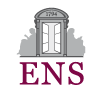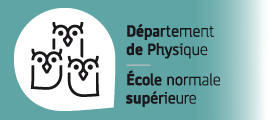Advanced Methods in biological physics and soft matter Advanced quantum mechanics Atoms and photons Biophysics Condensed Matter Theory Fundamentals of nanostructures General Relativity Lie Groups, Lie Algebras and Representations Magnétisme et (...) | ↦ Lire la suite
 Les laboratoires de recherche
Les laboratoires de recherche



 Le département de physique
Le département de physique

 Programme, cours et calendrier 2022 - 2023
Programme, cours et calendrier 2022 - 2023 

